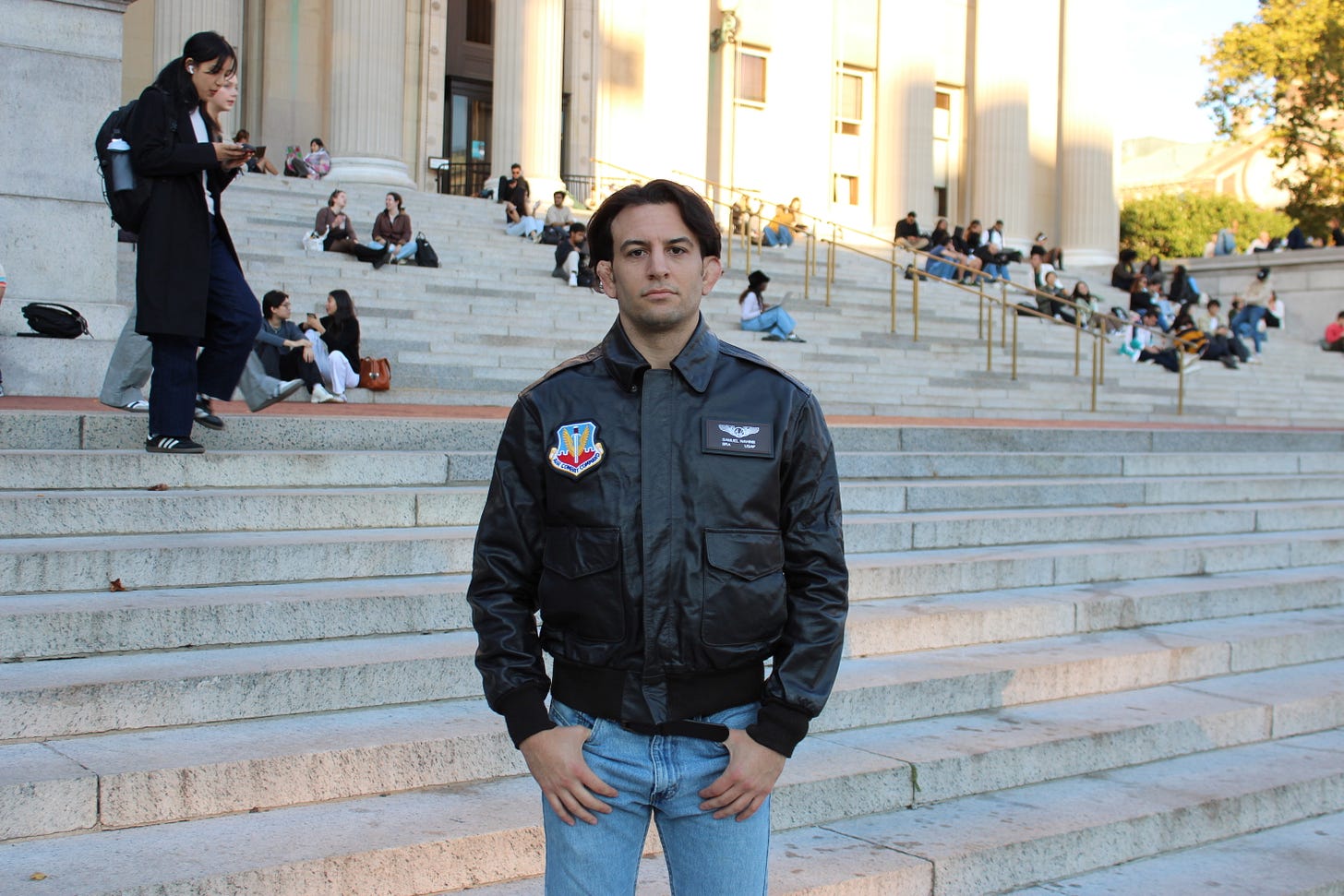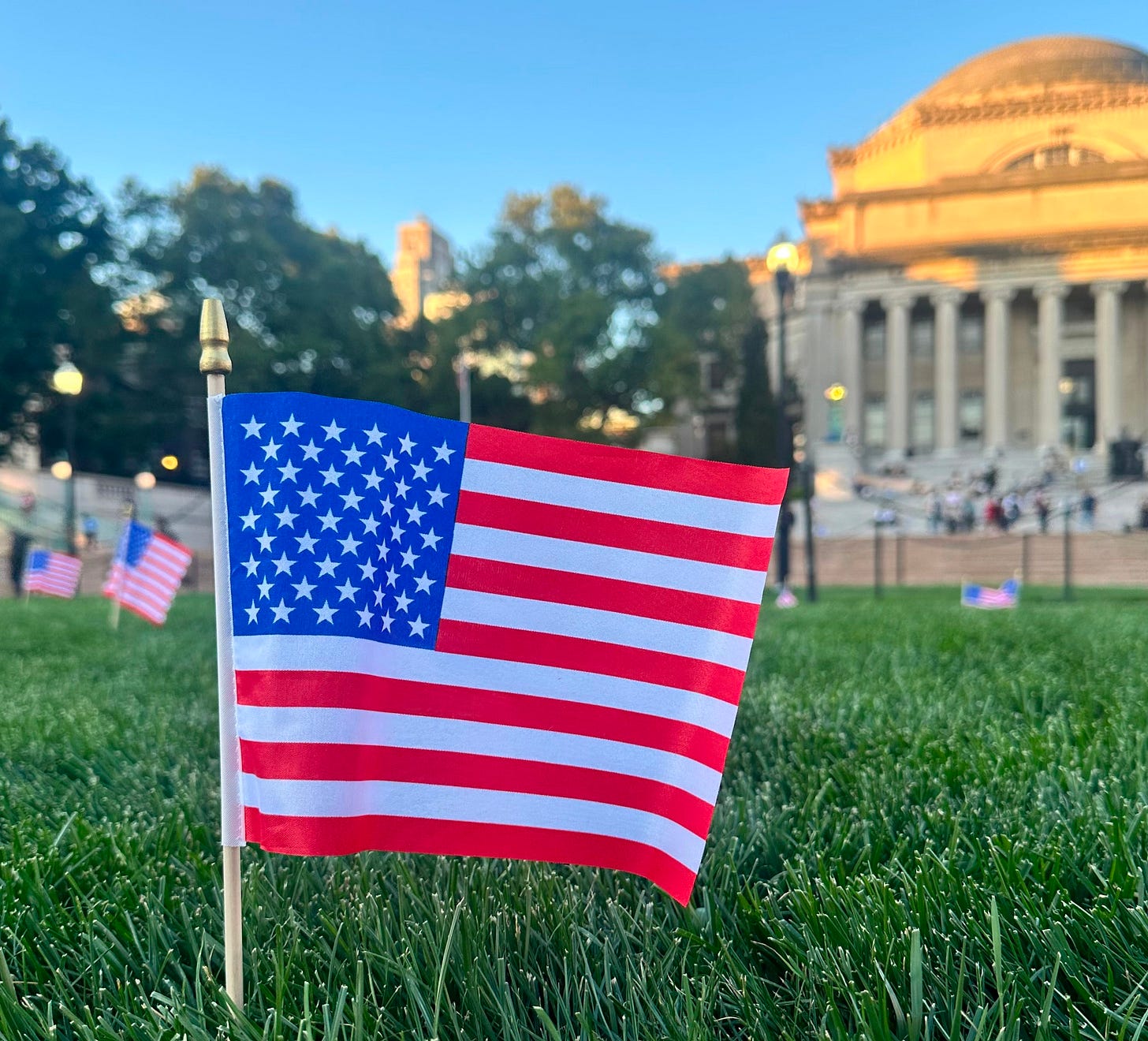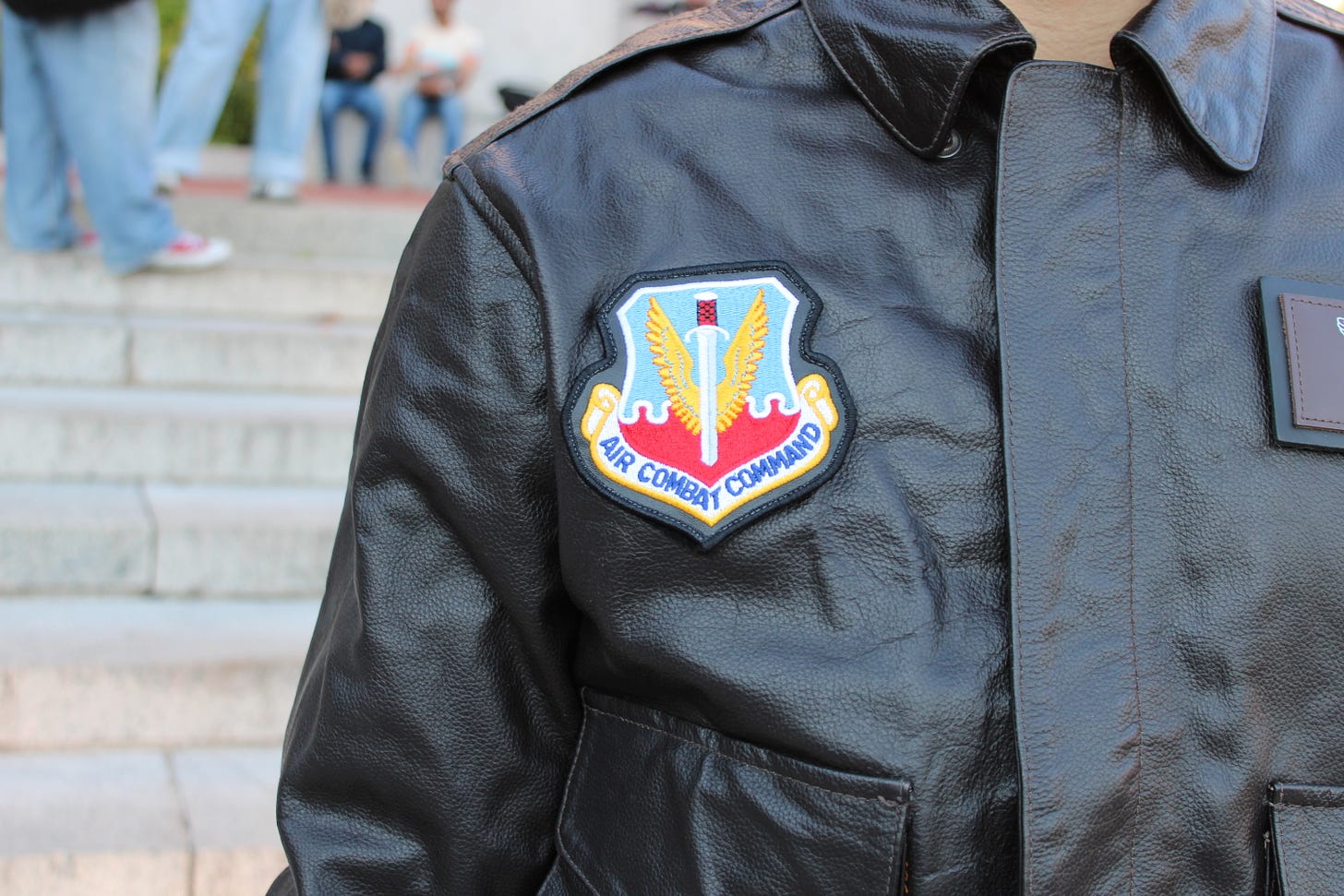‘I thought this was left in Afghanistan’: Columbia’s Veterans Are Struggling
Amidst anti-American protests and a housing crisis, many student veterans feel forgotten by the administration.
On September 15, the body of Brandon Christie, a Columbia University student and Marine Corps veteran, was found in a wooded area in Saranac, New York. Once an active member of Columbia University’s veteran community, Christie had been living out of his car. According to New York State Police, he had suffered “an apparent self-inflicted gunshot wound.”
At Columbia, Christie served as the director of community for Columbia MilVets, the school’s student veteran organization, and worked with several nonprofits. One student veteran who knew him described him as “a big teddy bear” who never raised his voice. Yet despite the resilience he no doubt developed as a Marine and the respect his friends and colleagues had for him, Christie struggled with his mental health.
In November 2023, his friend and fellow veteran Sam Nahins GS ’24, SOA ‘27 noticed that Christie had stopped showing up to class and responding to texts.
Nahins, who was director of internal operations for MilVets at the time, emailed Columbia’s Center for Veteran Transition and Integration (CVTI) detailing his concern for Christie’s well-being. While direct mental health intervention is not in CVTI’s purview, Nahins said they told him they’d check in on Christie.
According to Nahins, Christie took a leave of absence in November 2023 and his mental health appeared to improve. He traveled to Europe, told Nahins he had started day trading, and by the summer of 2024 had landed an internship at Bank of America.
By early September, he was homeless.
While Christie had other stressors in his personal life unrelated to Columbia, Nahins insists that Christie would still be with us if he had access to affordable housing. His story is far from the norm, but sadly, the homelessness and poor mental health he experienced are common problems for veterans at GS.
The Struggle for Housing
“There’s a lot of veterans who just aren’t getting money or are facing homelessness,” Army veteran and MilVets treasurer PJ Sonnen GS ’26 told Sundial.
Much of the fault lies with the U.S. Department of Veterans Affairs (VA), according to Sonnen. Student veterans relying on Veteran Readiness and Employment (VR&E) benefits to cover living expenses often do not get paid when they should because the VA does not process their paperwork on time.
Ben, a veteran who asked that we not use his real name, was homeless for almost a year because of issues with his VR&E payments. When he first experienced homelessness in January 2022 he asked the GS administration for help. They told him Public Safety might be able to get him a hotel for three nights.
For a year, Ben slept in his car or on a friend’s couch. Unsurprisingly, the stress from homelessness hurt his academic standing—he wants to double major, but he can’t because his GPA is too low.
Ben eventually found a place to live in January 2023 and is beginning to recover academically, but he no longer has faith that Columbia is willing to go the extra mile for students who served their country.
“They use veterans to build the profile of this school, but when it comes to helping veterans, they’re nowhere to be found,” he told Sundial. “It seems like the school doesn’t care.”
Protesters and “Baby Killers”
Many veterans’ mental health declined during the spring semester because of the anti-American and anti-military sentiments that pervaded the anti-Israel protests. And the University, they say, wasn’t there to support them.
More than a few of Columbia’s veterans risked their lives fighting terrorist organizations overseas, and were enraged when they saw protesters supporting groups like Hamas. According to Sonnen, many simply stopped going to class. Nahins even claimed that he had to talk several veterans out of doing something “irrational.”
“A lot of veterans came to us saying ‘Dude, I thought we left this over there. I thought this was left in Afghanistan. I thought this was left in Iraq,’” Sonnen said, referencing the protesters’ rhetoric.
He said veterans were particularly disturbed by the flag burning that occurred at some of the protests downtown.
“How are you going to react to that when you know you buried your brother in that flag?” Sonnen said.
Nahins said MilVets members were “freaking out” about how veterans would react to protests many said were anti-American.
“A little bit more community and support from organizations such as CVTI would have gone great,” Nahins said. “On October 8th, they should have come out with a public statement saying, ‘We back the veterans, the IDF veterans, the US veterans.’ That’s their job.”

In fact, making public statements of solidarity is not CVTI’s job. The Center’s mission is to advise university administration on how to best help veterans succeed in higher education. Direct support is meant to come from places like Columbia’s Counseling and Psychological Services (CPS) and Student Life.
Even before the spring protests, Columbia’s campus sometimes felt hostile for veterans. Nahins claims he’s been called a “murderer,” “colonizer,” and even a “baby killer” by his classmates in previous semesters. He also said many veterans “do extra vetting on professors” for fear that they might be academically penalized for voicing an unpopular opinion.
“Veterans are expected to integrate with traditional students. No one's expected to integrate with veteran students,” Nahins added.
All the academic, social, and housing-related stress means some veterans get left behind.
“I know veterans who dropped out, turned into addicts, and they just slipped through the cracks, and no one knows about it,” Nahins said.
The School of General Studies declined to comment. The University did not respond to a request for comment.
Cause for Hope
When I asked Sonnen what he thought should be done to improve veterans’ mental health, he had several good ideas.
He said the University should provide veterans with their own lounge space, which would offer them reprieve when campus feels hostile. Such a lounge should be staffed by at least one mental health counselor dedicated to helping veterans, he said.
Currently, CPS is responsible for mental health treatment for undergraduates, including GS veterans. CPS has a team of psychologists with “particular interest, experience, or advanced training in veterans' concerns.” However, Sonnen and Nahins both said that scheduling appointments with CPS can be cumbersome and time consuming.
“It takes a while to get an appointment,” Sonnen said. “They're not always fast, and they're weeks apart, and they're only for a certain period of time. That's not adequate enough for these veterans who have fought in wars for way longer.”
While drop-in counseling is available four days a week for students “experiencing high levels of distress,” there's no guarantee that a psychologist from the Veterans’ Concerns team will be available.
Even so, there are many people at Columbia who work hard for veterans. Even after venting his frustrations with the administration, Ben, the once-homeless veteran I spoke to, emphasized that CVTI’s director, Dean Dave Keefe, and Tessie Scroggins, his financial advisor, both “went above and beyond” in advocating for him. Nahins said he loves many people in the administration, including General Studies Dean Lisa Rosen-Metsch who he thinks is “incredible.”
Even on housing issues, the school is taking important steps. On September 26, Rosen-Metsch announced that GS will receive $30 million over the next three years to enhance financial aid and will begin a “new residential living project” exclusively for GS students.
Lastly, despite the unique challenges veterans at Columbia face, it’s still true that the University offers real opportunity for them. Columbia’s veterans have a graduation rate above 90 percent and “a record of job and graduate school placement that equals Columbia’s non-veteran graduates,” CVTI says on their website.
The student veterans I spoke with say they understand how privileged they are to study at an Ivy League university, and they all expressed a love for Columbia.
“I’ll always be proud and honored to come here from where we’ve come from,” Sonnen said. “I know that the administration may have dropped the ball on some things, but I'm still proud to go to this school, and I'm glad we'll be able to graduate from it.”
As a fellow student veteran at GS, I share Sonnen’s pride. I only wish Brandon could graduate with us.
Mr. Smith is a staff writer. He is a senior at the School of General Studies studying political science, and an Air Force veteran.





All of this is horrific and so hard to fathom that it is happening in America! And sadly the ones calling our military “baby killers” are most likely in favor of unlimited abortion!!!!